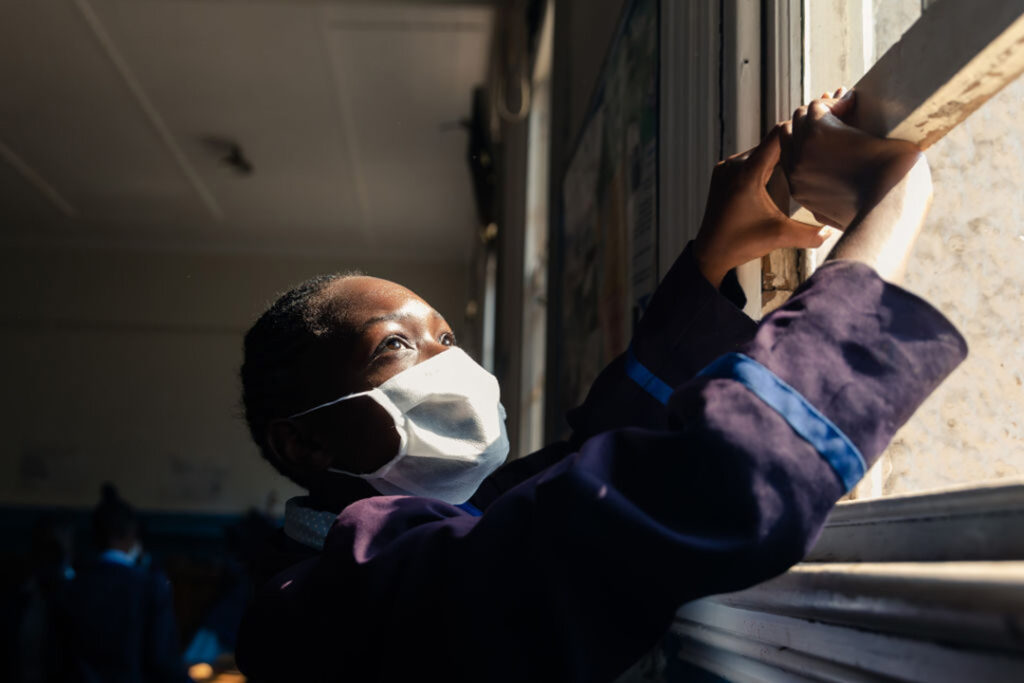ADF STAFF
At a time when Africans are dealing with the peaks and valleys of COVID-19 infections, China continues to push misinformation about the disease.
Government officials in China recently acted on a debunked claim when they suggested that COVID-19 was being carried along by wind from North Korea.
Although there is no evidence supporting the idea that the disease can spread via wind over long distances, officials in the border city of Dandong directed residents living along the river between the two countries to close their windows.
“Try not to open windows in southerly weather for residents along the river,” the city of Dandong’s health committee posted online on May 31 when the city saw COVID-19 infections spike shortly after North Korea experienced a widespread outbreak.
Chinese authorities in Dandong tested the air from North Korea for traces of COVID-19. CNN reported that online videos showed health workers placing what appeared to be rows of air monitors along the Yalu River.
Dandong citizens also were told not to walk by the river and to be tested more often.
South African newspaper The Sunday Times debunked the claim in a June 10 article entitled “Can COVID-19 carry in the wind?”
Experts, including those at South Africa’s National Institute for Communicable Diseases (NICD) and the Africa Centres for Disease Control and Prevention, agree that COVID-19 is unlikely to spread in such a manner.
“The disease spreads from person to person through infected air droplets that are projected during sneezing or coughing,” NICD’s website states.
A study by researchers at the University of Nicosia in Cyprus showed that viral particles become less concentrated the farther they travel:
“When a person coughs, the wind speed in an open space environment significantly influences the distance that airborne disease carrier droplets travel. Without the surrounding wind speed, the droplets will fall to the ground a short distance from the person exhaling or coughing. … These droplets may not constitute a risk regarding facial contact of adults at this distance.”
The study showed that in windy conditions, “we found saliva droplets can travel distances up to 6 meters with a decrease in concentrations and liquid droplet size in the wind direction.”
Benjamin Cowling, professor of infectious disease epidemiology at the University of Hong Kong, told Bloomberg that viruses do not survive well in open air and sunlight.
Bloomberg reported that most of the infected people found in Dandong in early June had not been outside of their homes for at least four days before being diagnosed with COVID-19, according to the Dandong Center for Disease Control.
So what could explain the mysterious rise in cases that coincided with a North Korean outbreak?
The cause likely is tied to the movement of people, according to infectious disease expert Peter Collington. He pointed out that Dandong had been under lockdown for nearly two months, but people still could work outside if necessary.
The Australian National University professor suggested to British newspaper The Daily Telegraph that essential workers in Dandong could have fueled the spread of COVID-19.
The porous 1,300-kilometer border between China and North Korea is separated by the Yalu River, which is less than 1 kilometer wide in parts of Dandong, a key trading hub between the countries.
About 70% of North Korean trade went through Dandong before the pandemic, much of it by train from neighboring Sinuiju city in North Korea. Freight was suspended for much of the pandemic, but China and North Korea reopened it on a trial basis in January.
Dandong authorities also recently offered cash payments for information on smugglers crossing the river.
The window shutting advice “might be detrimental,” Collington said. “You are better off having fresh and open air.
“If that theory is promulgated, it makes people stay inside more, where you’re more likely to get infections from other people.”
In a world where COVID-19 misinformation can spread faster and farther than the disease itself, Africans can benefit by learning from China’s mistakes.

